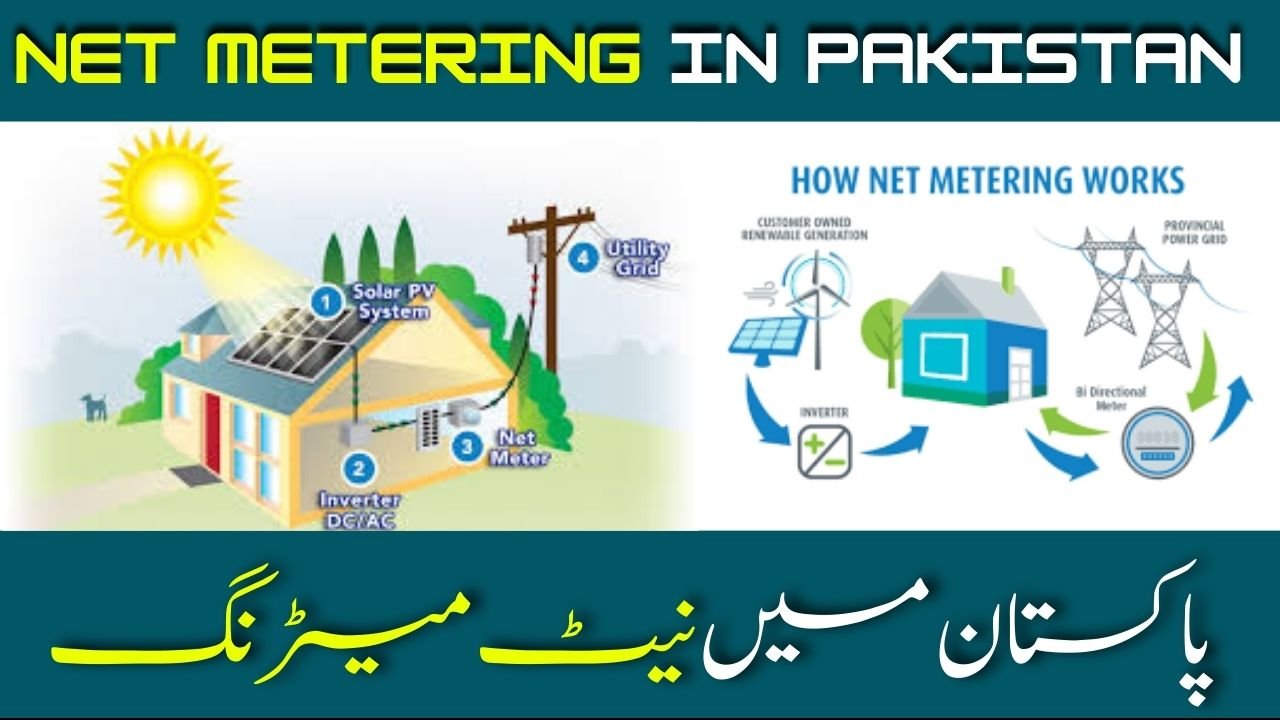Net Metering
Net metering is an electricity policy that allows utility customers to generate their own electricity using renewable energy systems, such as solar panels, and to feed any excess electricity back into the grid. In Pakistan, net metering has become increasingly popular as a way to encourage the adoption of renewable energy and reduce the country’s reliance on fossil fuels. This policy provides numerous benefits for both consumers and the overall energy sector.
Overview of Net Metering in Pakistan
The National Electric Power Regulatory Authority (NEPRA) introduced net metering regulations in 2015 to promote the use of renewable energy sources, particularly solar energy. These regulations allow consumers who generate electricity through solar photovoltaic (PV) systems to connect to the national grid. The energy generated can be used for personal consumption, and any excess energy can be sold back to the utility company. Kissan Card Distribution
Net metering systems are equipped with bi-directional meters that can record both the electricity consumed from the grid and the electricity fed back into the grid. The net consumption is calculated based on the difference between the two, and consumers are billed accordingly.
Benefits of Net Metering
- Cost Savings: Consumers can significantly reduce their electricity bills by generating their own electricity and selling excess energy back to the grid.
- Environmental Benefits: Net metering promotes the use of renewable energy, reducing greenhouse gas emissions and reliance on fossil fuels.
- Energy Security: By diversifying the energy mix and increasing the use of local renewable resources, net metering enhances energy security.
- Economic Growth: The adoption of renewable energy systems can create jobs and stimulate economic growth in related sectors, such as manufacturing, installation, and maintenance.
Challenges of Net Metering
- Initial Cost: The upfront cost of installing a solar PV system can be high, which may be a barrier for some consumers.
- Technical Barriers: Integration of distributed generation into the existing grid requires technical upgrades and skilled personnel.
- Regulatory Hurdles: Ensuring consistent policies and regulatory frameworks across provinces can be challenging. Benazir Taleemi Wazifa

FAQs about Net Metering in Pakistan
Q1: What is net metering? A1: Net metering is a billing mechanism that allows consumers who generate their own electricity using renewable sources, such as solar panels, to feed any excess electricity back into the grid. The energy is measured by a bi-directional meter, and consumers are billed for the net consumption (total consumption minus the excess energy sent to the grid).
Q2: How does net metering benefit consumers? A2: Net metering benefits consumers by reducing their electricity bills. They can use the electricity they generate for personal consumption and receive credits or payments for any excess electricity fed back into the grid. This can lead to significant cost savings over time.
Q3: What types of renewable energy systems are eligible for net metering? A3: In Pakistan, net metering is primarily designed for solar PV systems. However, other renewable energy sources, such as wind and biomass, can also be eligible if they meet the technical requirements set by NEPRA.
Q4: How do I apply for a net metering connection? A4: To apply for a net metering connection, consumers need to follow these steps:
- Install a solar PV system that meets the technical standards specified by NEPRA.
- Submit an application to your local distribution company (DISCO) along with the necessary documentation, including system design and capacity details.
- The DISCO will conduct a technical feasibility study and, if approved, will install a bi-directional meter at your premises.
- Once the meter is installed, you can start feeding excess electricity into the grid.
Q5: What are the costs associated with net metering? A5: The primary cost associated with net metering is the installation of the solar PV system. This includes the cost of solar panels, inverters, mounting structures, and installation labor. Additional costs may include application fees and any technical upgrades required by the DISCO. However, these costs are often offset by the savings on electricity bills over time.
Q6: How is the electricity generated by my solar PV system measured? A6: The electricity generated by your solar PV system is measured using a bi-directional meter installed by the DISCO. This meter records the electricity consumed from the grid and the electricity fed back into the grid. The net consumption (total consumption minus excess generation) is used to calculate your electricity bill.
Q7: Can I sell excess electricity back to the grid? A7: Yes, under the net metering policy, you can sell any excess electricity generated by your solar PV system back to the grid. You will receive credits on your electricity bill or payments for the excess electricity, depending on the policies of your local DISCO.
Q8: Are there any size limitations for solar PV systems under net metering? A8: Yes, there are size limitations for solar PV systems under net metering. The maximum capacity for residential consumers is typically 1 MW, while commercial and industrial consumers can have larger systems, subject to approval by NEPRA and the local DISCO.
Q9: What happens if my solar PV system generates more electricity than I consume? A9: If your solar PV system generates more electricity than you consume, the excess electricity is fed back into the grid. You will receive credits or payments for this excess electricity, which can be used to offset your future electricity bills or receive financial compensation.
Q10: Is net metering available across Pakistan? A10: Net metering is available across Pakistan, but the implementation and application process may vary depending on the local DISCO. It is advisable to check with your local DISCO for specific details and requirements.
Conclusion
Net metering is a crucial policy for promoting renewable energy in Pakistan. It provides numerous benefits, including cost savings for consumers, environmental benefits, enhanced energy security, and economic growth. While there are challenges associated with the initial cost and technical integration, the long-term advantages make net metering an attractive option for many consumers. By understanding the application process, costs, and benefits, more individuals and businesses can take advantage of this opportunity to contribute to a sustainable energy future in Pakistan.
